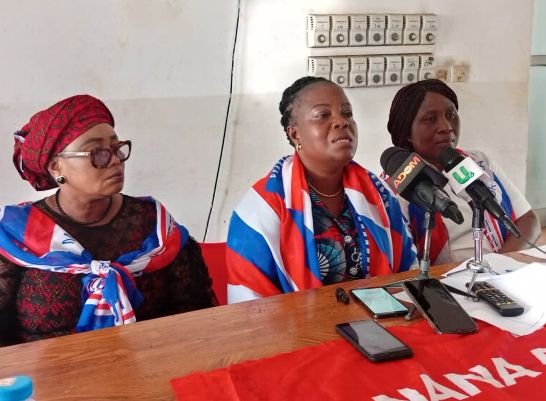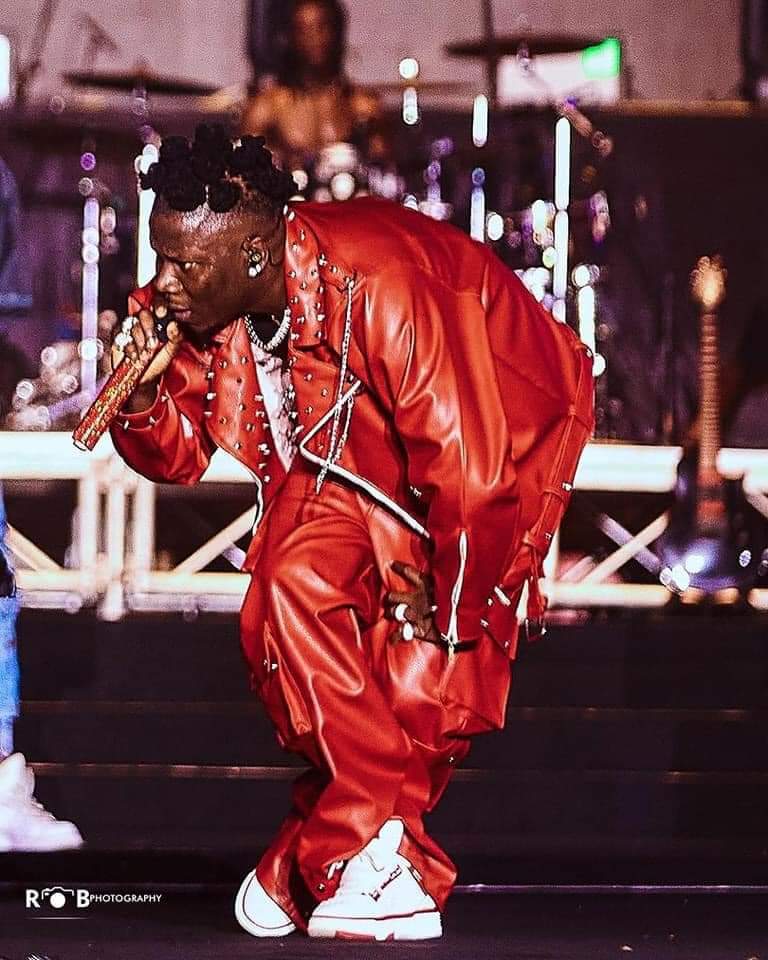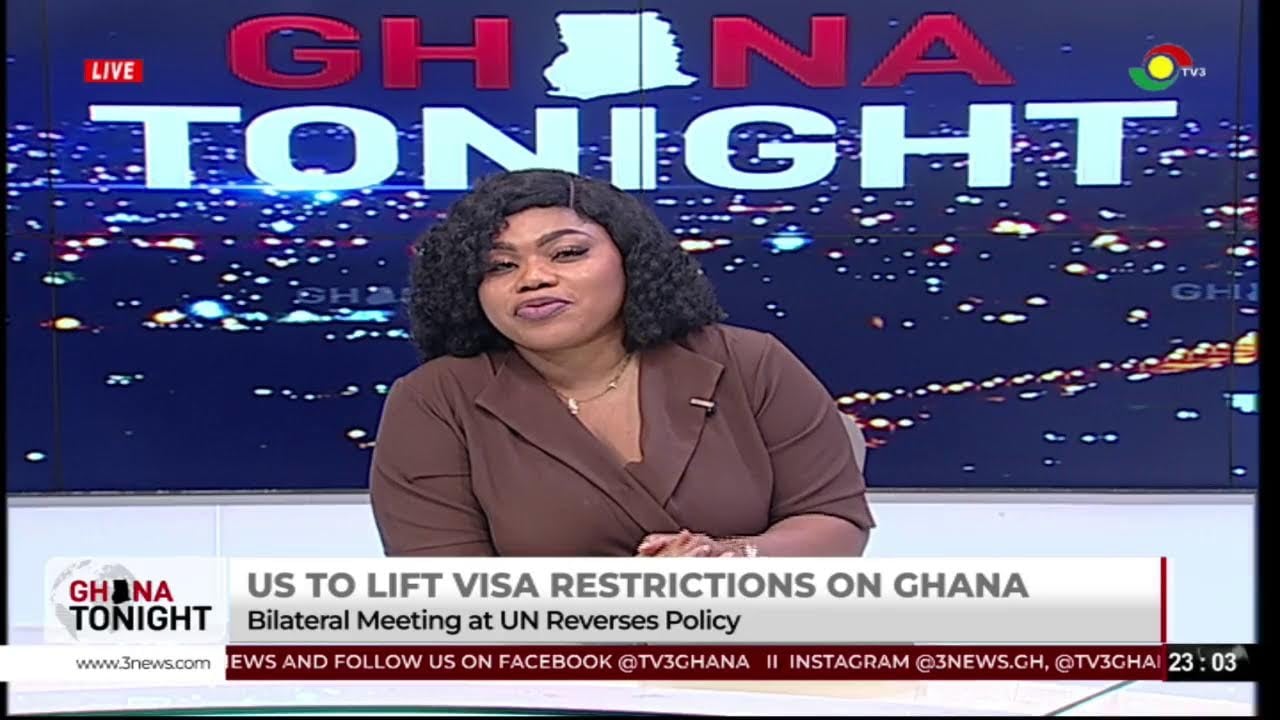
By Mildred Siabi-Mensah, GNA
Sekondi, March 10, GNA - The Western Regional Coordinating Council in collaboration with various women groups have celebrated the International Women's Day with a call on women to believe in their abilities and step out to do more for themselves.
The women groups included the queen mother's association, women in the media, women in politics, the department of gender and female staff of WRCC who came together to celebrate the achievement of women over the years and also use the opportunity to encourage one another to be each other's keeper in the quest for more recognition and empowerment for the female.
The global theme for this year's celebration is, "I am Generation Equality: Realizing Women’s Right", which is aligned with UN Women’s new multigenerational campaign, Generation Equality, which marks the 25th Anniversary of the Beijing Declaration and Platform for Action.
Established in 1911, International Women’s Day is a major day of global celebration for the economic, political and social achievements of women past, present and future.
It is a day in which women from around the world unite in thoughts, prayers, struggles, hopes and dreams and celebrate their accomplishments in media, education, business, science, art, medicine, public service, athletics among other fields.
Ms Maribel Okine, the Acting Regional Director of the Department of Gender, said there is the need for women to support each other for equal opportunities and growth.
Nana Kofi Abuna, the chief of Essipon urged women to train their children with the right values and rise above the challenges that militate against the development of women.
Madam Abena Kwala, the NPP Women Organiser for the Western Region, urged women to train their minds and hands for better lives.
She also expressed concern at the lack of interest on the part of many women to enter into politics saying, "Don't be afraid to do politics because it is one of the avenues for the voices of women to be heard".
Mrs Mildred Siabi-Mensah, a representative from the Women in Media, urged women to offer the necessary push, advise and support each other to overcome prevailing obstacles.
She said "as image of the creator, we have both the physical and the natural abilities to succeed and must therefore be encouraged by this biblical understanding to forge ahead".
Mrs Gifty Eugenia Kusi, the Deputy Regional Minister, said women remain the cornerstones of communities working tirelessly and making countless differences in the lives of those around them.
"We are gathered in spirit with all our sisters to acknowledge women in diverse circumstances; those in small remote villages, mountains, deserts, those living in mud and straw thatched homes, large urban cities, and rural countryside; workplace, the poor, the rich, and the unemployed; those in our schools, colleges and universities,
Those who are mothers, working women, and those who do both; Those who are single, married, divorced or widowed; those who are young, older or physically disabled; and those whom we know and those who are strangers".
She said the Western Region chose to celebrate the day with women in the media, queen mother's and all women's group because of the boldness to break every stereotype and work assiduously for the development of their homes, communities and the Nation at large.
Mrs Kusi described 2020 as a pivotal year for advancing gender equality worldwide, as the global community takes stock of progress made for women’s rights since the adoption of the Beijing Platform for Action.
It also marks several other galvanizing moments in the gender equality movement: a five-year milestone towards achieving the Sustainable Development Goals; the 20th anniversary of UN Security Council resolution 1325 on women, peace and security; and the 10th anniversary of UN Women’s establishment.
She stated that Ghana's goals towards achieving gender equality targets are guided by its commitment to International Instruments, the 1992 Constitution and national development frameworks.
"Efforts of Ghana in the promotion of gender equality and the empowerment of women, men, girls and boys are evident in its recent achievements as contained in various international indices such as Global Gender Gap report by the World Economic Forum. Ghana scored 0.673 and placed 107 out of 153 countries in 2020" , she added.
The National Gender Machinery over the years strengthened the gender legal and policy framework to establish a strong foundation for the advancement of women and girls through the development of policies such as National Gender Policy, Social Protection Policy, Child and Family Welfare Policy and the Justice for Children Policy.
Ghana has also implemented a law to protect inheritance rights of women for over 30 years. The Intestate Succession Law, PNDC Law 111, was promulgated in 1985. The Intestate Succession and the Property Rights of Spouses Bills have been introduced by the Government to secure women’s property and inheritance rights.
"We are very grateful to His excellency, the President, Nana Addo Dankwa Akufo-Addo for increasing the number of women appointed as Ministers and Deputy Ministers to 19.23 per cent as compared to 15 per cent in 1993, the highest figure in the history of Ghana."
The region is grateful to His Excellency, the President for benefitting from the numerous flagship programmes which has seen massive development in our region especially in the lives of women including free SHS, Girls in ICT programme to empower girls and young women, NABCO, planting for export and rural development.
She said it was an important opportunity to reflect on the accomplishments of women and create a connection, a spiritual network with all women around the globe through empathy, understanding, solidarity, and action.
The Deputy Minister said there is an urgent need for the passage of law the Affirmative Action (Gender Equality) Bill which has been on the drawing board for a long time because when the Bill is passed it will be a mechanism that will propel women in Ghana to realize their rights as enshrined in the numerous international, Regional and National frameworks on Human Rights.
GNA
Read Full Story











Facebook
Twitter
Pinterest
Instagram
Google+
YouTube
LinkedIn
RSS